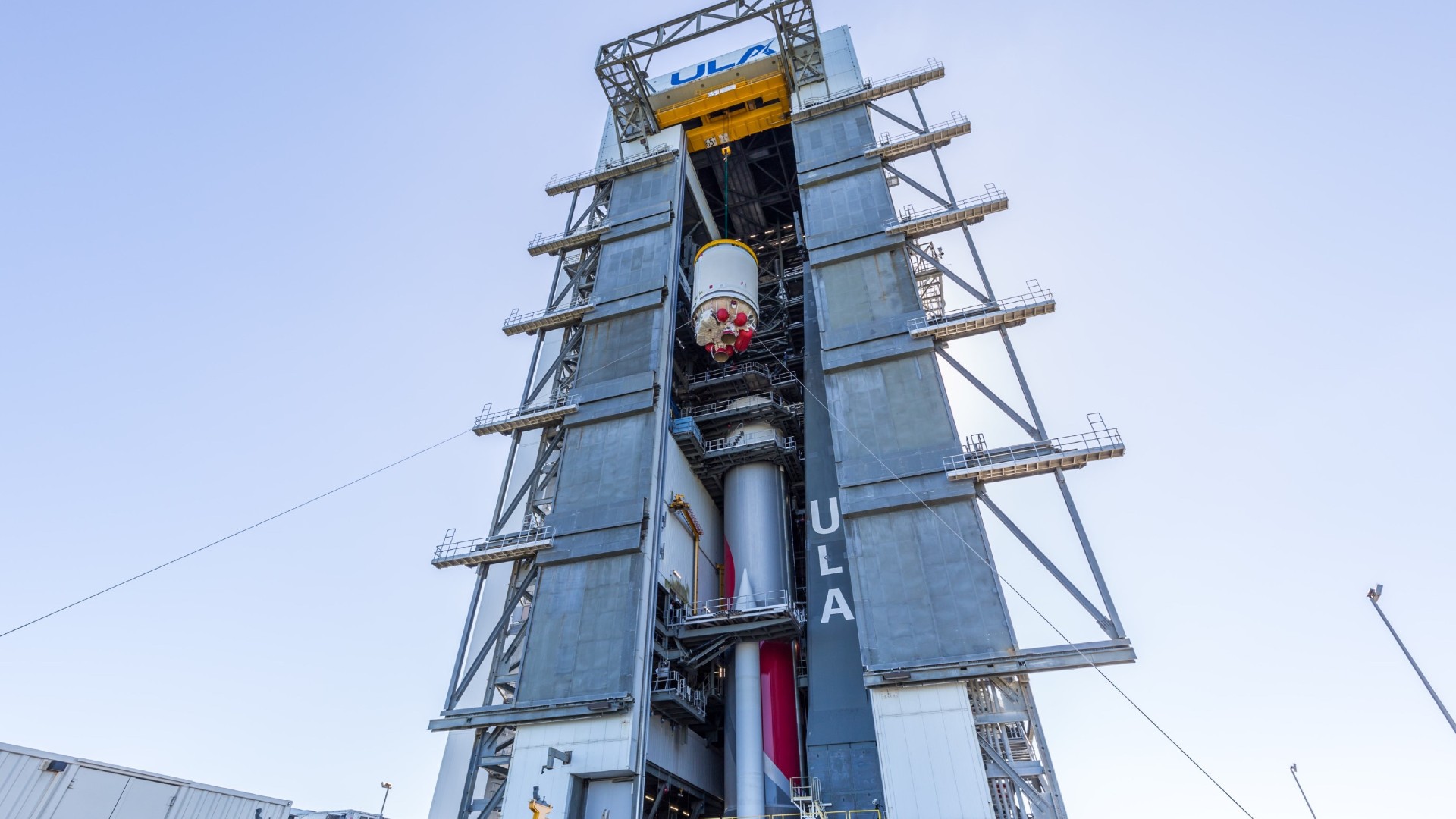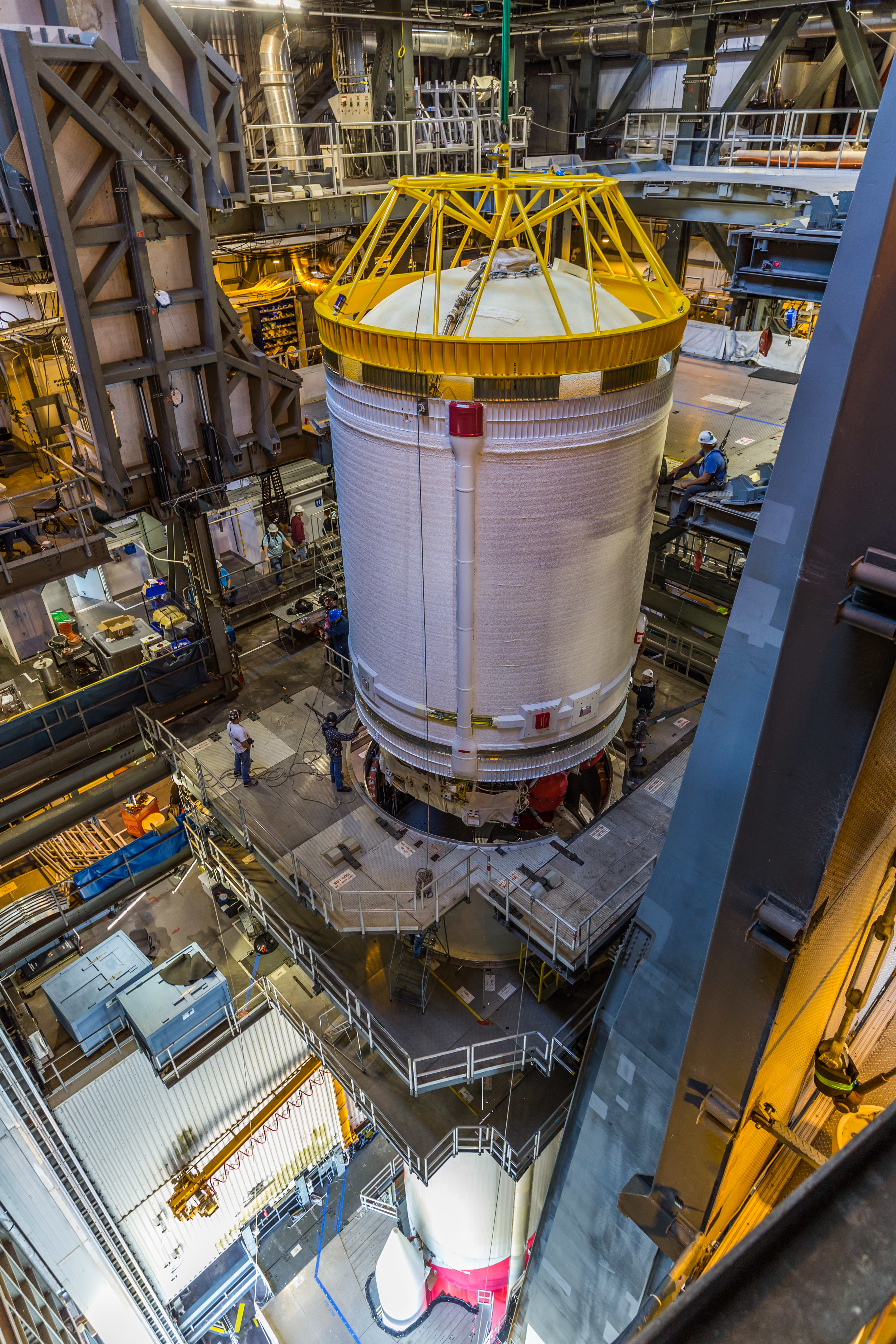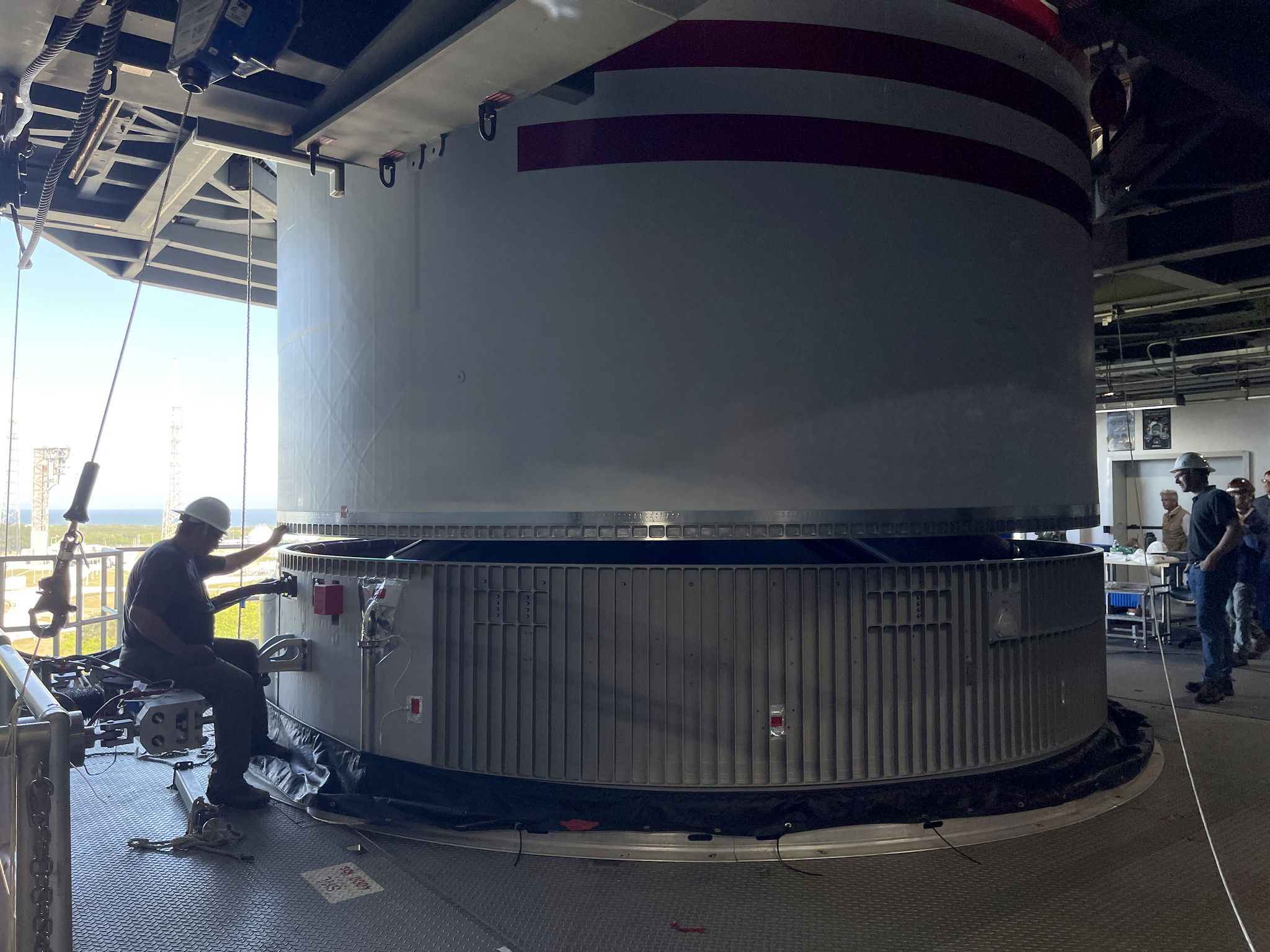
United Launch Alliance (ULA) has its sights set on a festive first launch of its brand new rocket.
ULA's long-awaited Vulcan Centaur is the successor to the company's veteran Atlas V and Delta IV vehicles and is now scheduled to lift off from Cape Canaveral Space Force Station in Florida on Christmas Eve. The rocket recently came together ahead of its first flight when its upper stage was integrated with its booster on Sunday, Nov. 19, according to a statement from ULA.
The launch is being called Cert-1 (Certification-1). Teams will need to get the rocket ready for an instantaneous launch window—meaning it must occur precisely at the scheduled time—which is set for 1:49 a.m. EST on Dec. 24. There are backup windows at similar times on Dec. 25 and 26 if that first opportunity passes, according to SpaceNews.
Related: ULA targets Christmas Eve for debut of new Vulcan Centaur rocket
Despite being the rocket's test flight, the mission will be an ambitious one. Aboard will be Peregrine, a robotic lunar lander built by Pittsburgh-based Astrobotic. It will be carrying, amongst instruments for other customers, payloads for NASA's Commercial Lunar Payload Services (CLPS) program.

It will be Astrobotic's first voyage to the moon, and could make history for the company as the first commercial lunar soft landing if it is successful.

If the launch goes ahead on one of the three days, Peregrine will be on its way for a landing attempt on Jan. 25. A backup window for the first half of January is being discussed with NASA in case the launch is delayed by storms, ULA Chief Executive Tory Bruno said in a call with reporters on Nov. 15.

The path to the pad has not been smooth for Vulcan Centaur, which has suffered numerous delays. It was notably due to launch in the first half of the year, but an explosion during testing of the rocket's upper stage in March set the mission back.
The rocket will however have a busy future ahead if all goes well with Cert-1. Bruno said Vulcan has a backlog of 70 launches for government and commercial customers and aims to have the rocket flying two times a month by the end of 2025.
Bruno expressed his excitement about the upcoming launch, despite the festive timing. "This is the end of a multi-year, long journey for us," Bruno said. "We're super excited about it. And it might seem hard to be doing this on Christmas, but it's the best Christmas present I think I could ever have this year."







